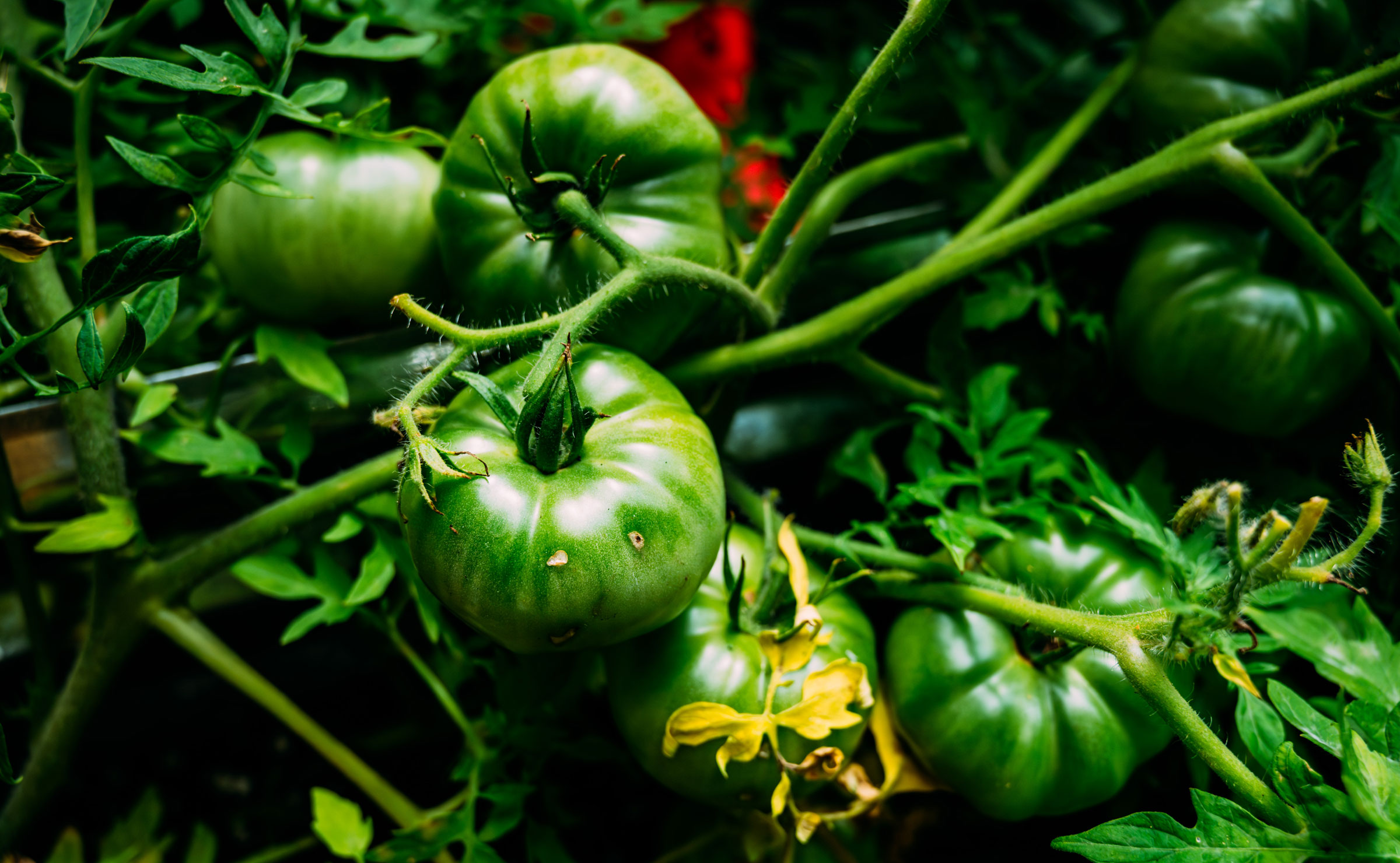Students Cultivate Change Through New Garden at Vic U

(Photo by Will Dang)
By Dan Blackwell
Undergrads have turned seeds into success through a new student-run community garden on Victoria University’s campus. Set to yield its first harvest this fall, the garden has thrived thanks to the combined efforts of students, staff and faculty.
Brought to life this spring by a team of student volunteers and VUSAC members, this 60-square-foot garden outside Annesley Hall boasts a diverse selection of vegetables, including kale, lettuce and tomatoes. One of the garden’s founders, fourth-year student and former VUSAC sustainability commissioner Amy Mann, says students have been seeking more sustainable food solutions for some time.
“We wanted to allow students to do urban agriculture,” says Mann. “I think it’s a very unique experience being part of your food system and growing food that ends up being consumed by students, especially in Toronto where most don’t have any space to garden.”
Mann says the community garden is a pilot project, and, like the student-run Eat After Eight initiative, which recycles food at Burwash Dining Hall, it aims to address food insecurity issues through co-operation and collaboration with Victoria University staff and faculty. Mann says that while the garden came to fruition thanks to dedicated student volunteers, it wouldn’t have been possible without funding from UTERN and Hart House, along with the support of Professor Eva-Lynn Jagoe and staff at Victoria University.
“Vic U has generously provided us with the space, along with the use of resources like water and some equipment,” says Mann. “We’ve been very fortunate to work with staff that are as enthusiastic about this project as we are.”

(Photos by Amy Mann)
Vikas Mehta, Victoria University’s associate CAO of infrastructure and sustainability, says he supports student-led initiatives for a more sustainable campus. He drafted an agreement between the university and students to ensure the garden’s upkeep throughout the year and says the key to success was finding the right location.
“As much as we’d like to, we couldn’t just offer up the entire quad for a community garden,” says Mehta. “Still, we want to support any good sustainability initiatives that students come up with, even at a smaller scale.”
Initial suggestions of putting the garden on a balcony at Isabel Bader Theatre proved impractical, says Mehta, making the green space outside Annesley Hall the logical choice. He adds that supporting a community garden, big or small, can have a cascading effect throughout campus.
“I think every time students undertake these sorts of pilot projects, it gives others a chance to reflect on and realize the importance of sustainability,” says Mehta. “It keeps Vic U’s ongoing sustainability initiatives at the forefront and shows our commitment to supporting students who come back with new sustainability ideas.”
Mehta points to the university’s other ongoing sustainability initiatives, including painting the windows of E.J. Pratt to prevent bird collisions, as examples of how students and the administration can partner to create a greener campus.
“The garden is well kept and well looked after, and the students deserve a lot of credit,” says Mehta. “So far the students have done a great job of helping make Vic a more sustainable place.”
Mann says she is optimistic about students’ ability to maintain the garden—and hopefully expand it someday.
“A lot of first-year students have been volunteering,” she says. “They’re very enthusiastic about supporting the garden, so I’m excited to see what they’ll do after I graduate and they take over the responsibilities.”
Mann says the next step for the garden is a harvest in September, with a meal planned at Burwash sometime this fall. She says she feels positive about what she and others have accomplished and what the garden represents.
“I feel hopeful that it will encourage students to think about where their food comes from,” she says. “It gives students a chance to think about locally sourced food and approach food in an environmentally conscientious way.”
“Thinking about the food that we eat, who produces it and how it impacts the land is a great learning opportunity, and I hope that Vic’s incoming students carry it forward.”
